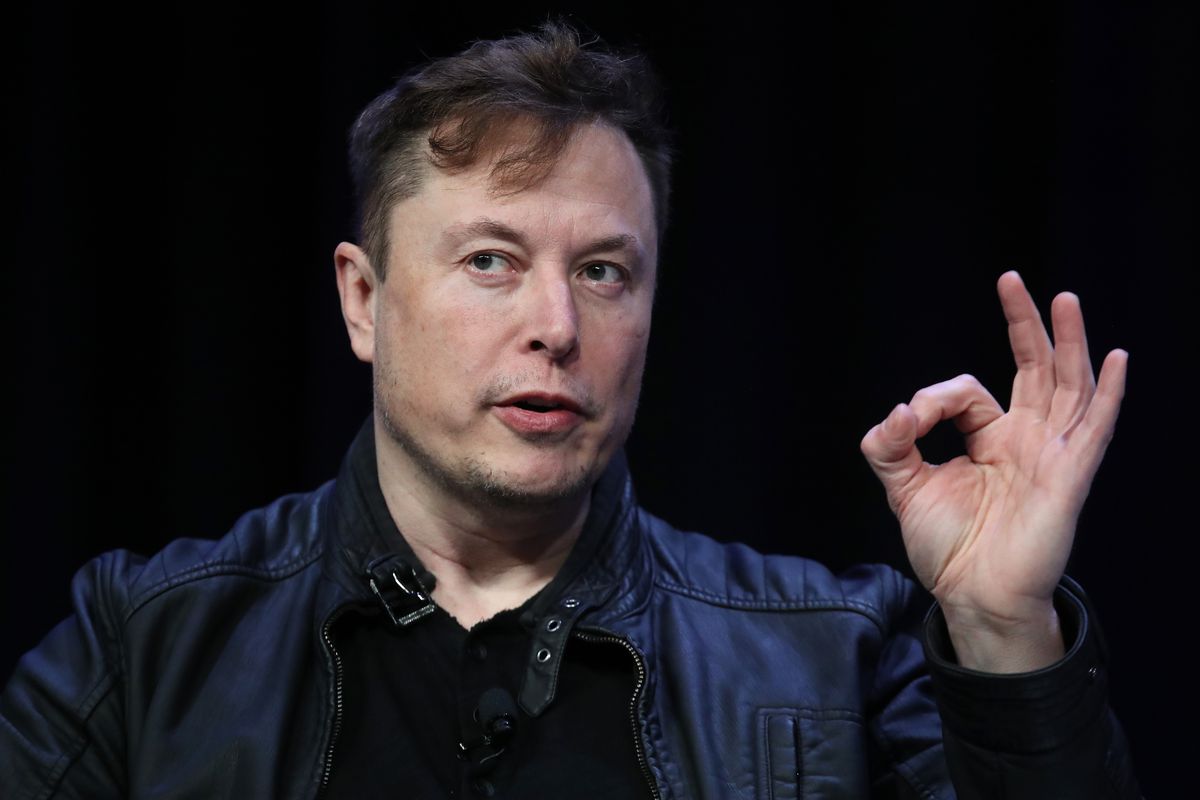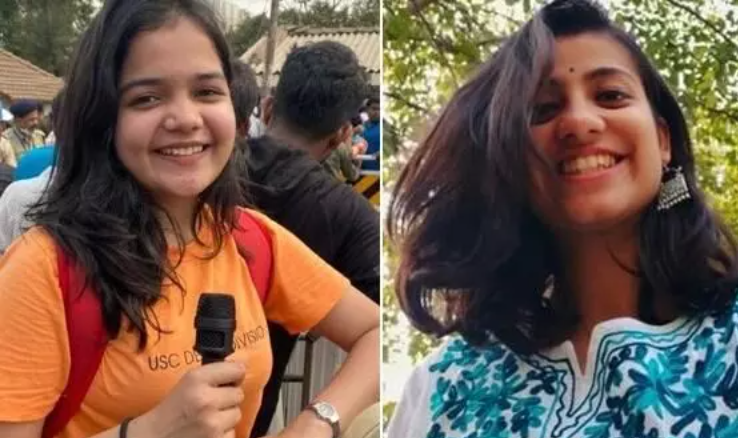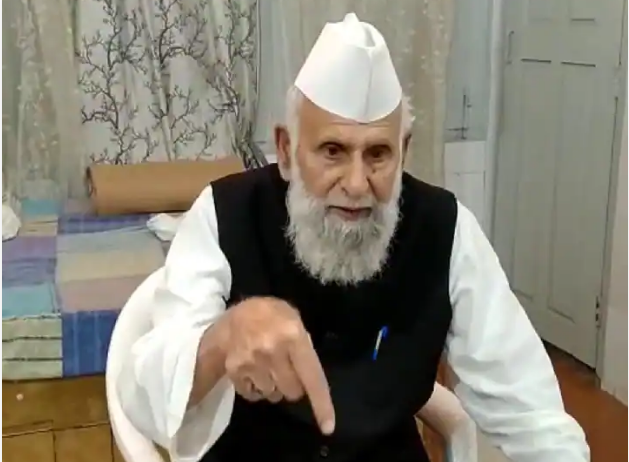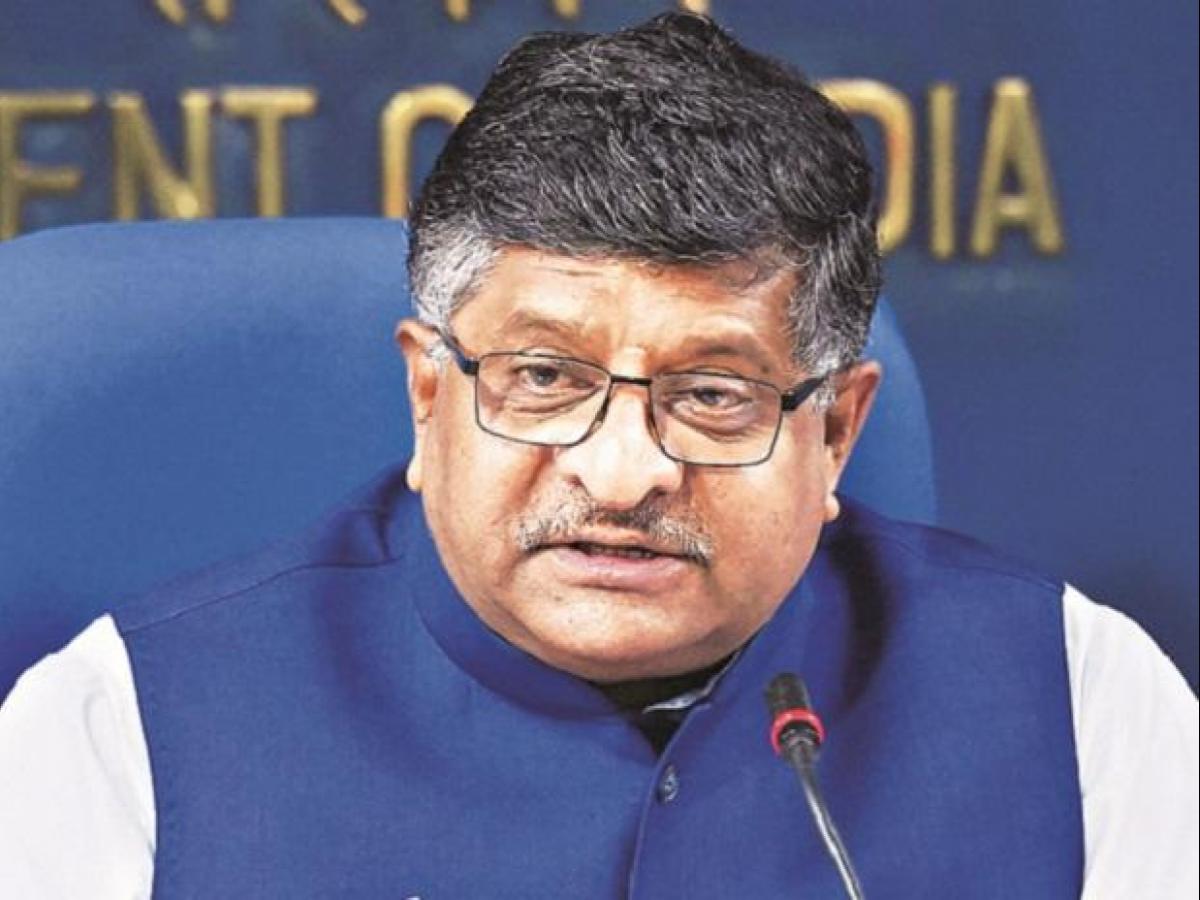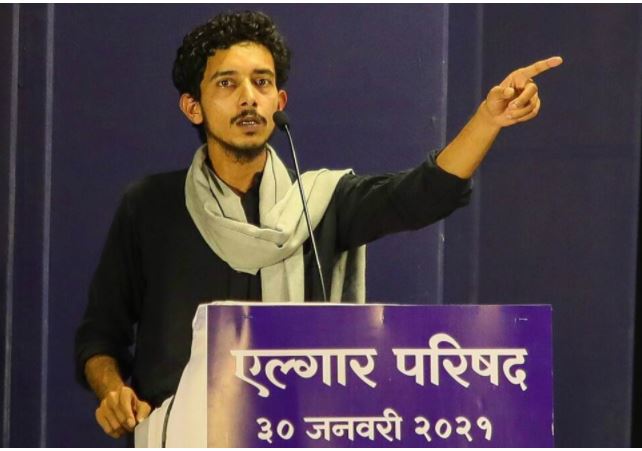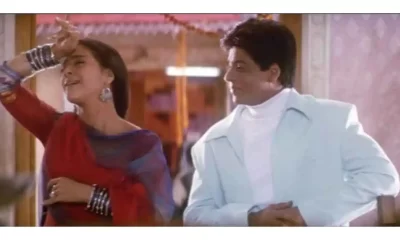India News
Justice Shah: Is this what the value of human life’s coming to?
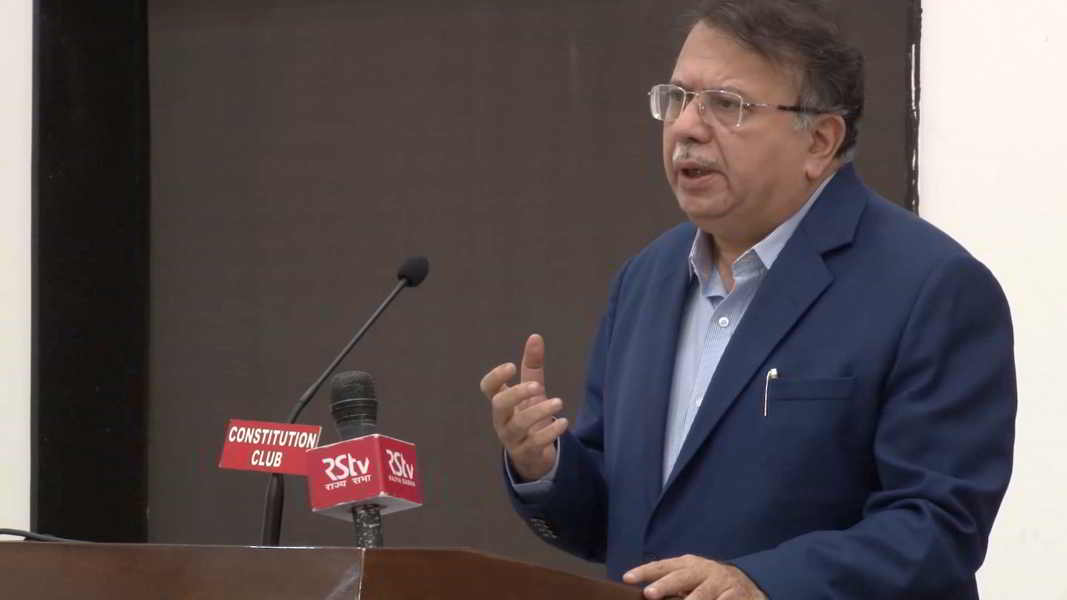
[vc_row][vc_column][vc_column_text]In his lecture on nationalism, he was critical of the apex court’s judgements and upheld freedom of speech
By Sucheta Dasgupta
Former Delhi High Court chief justice Ajit Prakash Shah has provided a whole lot of constructive criticism for the Indian judiciary. Speaking at the MN Roy Memorial Lecture last week, Justice Shah (retired) looked critically into two Supreme Court judgments, one Supreme Court decision, one High Court order, a law and the demand for one made by a leading public figure.
Justice Shah criticized the Supreme Court’s decision to uphold the constitutionality of criminal defamation in Subramaniam Swamy vs UOI case in May 2016. Congress vice-president Rahul Gandhi, Delhi Chief Minister Arvind Kejriwal and BJP leader Subramanian Swamy had challenged the constitutional validity of sections 499 and 500 of the Indian Penal Code, providing for criminal defamation. “Right to free speech is not absolute. It does not mean freedom to hurt another’s reputation which is protected under Article 21 of the Constitution,” the Supreme Court had ruled.
Known for his bold judgements, especially the one which decriminalised homosexuality in 2009, the ex-judge, who retired in 2010, also slammed the top court’s November 2016 order directing all cinema halls across India to play the national anthem before the start of a film, and requiring the audience to stand up as a “show of respect”. “The order of the Court, which seems a little short on reasoning to help understand how such an interim order was passed, befuddles and seems contrary to the spirit of the Constitution and past precedent, Bijoe Emanuel [in this historic 1986 case, a family of Jehovah’s Witnesses won the permission not to sing the national anthem in school, arguing that the act violated their right to worship] which made it clear that we cannot be forced to sing the anthem. It is important to remember that the right to free speech and expression also includes the right not to speak or express ourselves,” Justice Shah explained. “However, under the guise of ‘law’, the Court has now stepped in and restricted our fundamental rights,” he said, adding: “The order may have ensured that cinema audiences throughout are now standing before the national anthem plays, but what the Court fails to have realised is that such an action is a performance, motivated by fear of being beaten up, rather than genuine respect and love for the anthem. In the end, it has actually undermined patriotism amongst fellow Indians”.
Next in his line of fire was the apex court’s decision in March to examine Azam Khan’s statement (that the Bulandhshahr gang-rape, of a woman and a minor, was an “opposition conspiracy”) in the light of the question that it itself raised— whether or not the right to free speech under Article 19(1)(a) is to be controlled singularly by the language under Article 19(2) or it is also impacted by the right to life and personal liberty under Article 21 of the Constitution. Outrageous as Khan’s comment is, for which he later apologised—and the Supreme Court rejected his apology—Justice Shah rightly pointed out that the answer to the aforesaid question may “have a profound impact in restricting the scope of Article 19(1)(a) and undermine our constitutionally guaranteed [fundamental] right”. Besides, he argued, how can one fundamental right be conditional to another one? After all, the remedy of all crises arising out of free speech is more free speech, and everyone is entitled to their opinion, however worthless or malformed those may be.
But, even the Bombay High Court has on occasion failed to protect the right to free speech, Justice Shah said. “Recently [February], it constituted a three-member committee (comprising two lawyers) to give a report on the scenes in the movie Jolly LLB-2 it found ‘objectionable’, because it was prima facie of the view that certain scenes—those involving a cowering judge and some dialogue between the lawyers—were in contempt of the judiciary and the legal profession. Mind you, this was a movie where the CBFC, i.e. the Censor Board, has given the requisite certification for its release. It was also a case where the High Court entertained the writ petition (later converted to a PIL) based only on two trailers and some photographs. The Bombay High Court’s order [directing deletion of four scenes from the film], the report of the three-member ‘committee’, and the proximity of the release date, essentially forced the producers and director of the movie to ‘compromise’ and undertake to make the requisite modifications and deletions to the objectionable scenes,” he maintained.
Justice Shah made a cogent argument for repeal of Section 124-A of the Indian Penal Code, infamous as the sedition law. He reminded his audience of the history of the law, introduced by the British to crush dissent by our freedom fighters. He drew his listeners’ attention to the fact that the United Kingdom, from which India inherited it, has abolished it in 2009. Citing the Supreme Court’s judgement in the 1962 Kedarnath Singh vs State of Bihar case, wherein it limited the application of the law to “acts involving intention or tendency to create disorder, or disturbance of law and order, or incitement to violence”, he said it had been inappropriate to view the JNU sloganeering incident in the same light. Nevertheless, he said, the broad scope of the law “allows it to be used by the state to go after those who challenge its power—whether it is the JNU students, activists such as Hardik Patel and Binayak Sen, authors such as Arundhati Roy, cartoonists such as Aseem Trivedi, or the villagers of Idinthakarai in Tamil Nadu protesting against the Kudankulam nuclear power plant”. Sedition charges seldom stick, but the harassment they cause is immense, he said, completing his argument.
Finally, Justice Shah called for a unanimous rejection by citizens of RSS chief Mohan Bhagwat’s demand for a national law against cow slaughter. “Preventing people from eating the food they want and effectively forcing a life choice on them undermines any feelings of nationalism and unity… We must be wary of forcing a single ideology or way of living on the entire country, especially a country as diverse as India, where states such as Kerala or the various states in the northeast consider beef a staple part of their diet. One reads multiple reports about slaughterhouse crackdowns in UP, crackdowns that are primarily targeted at Muslim butchers, leaving lakhs of people with fear, but without stable employment. We also recently had the horrific incident in Una where seven Dalits were beaten by cow-vigilantes for alleged cow slaughter. And how can we forget the lynching of Akhlaq, who was suspected for allegedly storing and consuming beef, but where the first thing that was sent for forensic examination was not his body, but the food that is in the fridge. Is this what the value of human life comes to?” Justice Shah said, reminding his audience that “only free souls can create abiding cultural values; they may physically belong to one particular class or geographically to a particular country; spiritually, they transcend all social and territorial limitations”.[/vc_column_text][/vc_column][/vc_row]
Book reviews
The Hill Of Enchantment Review: Ruskin Bond revisits his life as writer
The book not only delineates Ruskin Bond’s journey as a writer but also depicts the changing literary landscape from the 1950s to recent times.

India’s most loved and prolific writer from the hill, who wrote his first book when he was around 17, Ruskin Bond, turned 90 this year. In his seven decade literary journey, the author has written more than 500 novels, short stories, and poems set mostly in the hills and mountains of India.
The Hill Of Enchantment published by Aleph Book Company, is a memoir of his writing journey, with the subtitle, the story of my life as a writer. Bond revisits the people, mountains, railway stations, rooms, and markets that shaped him as an author. He says, characters in his novels and short stories are mostly inspired by the people he met in his life. The author confesses that some characters also portray his adopted family, friends and colleagues.
Expressing that if a writer wishes to create a little magic with his pen he must find a little magic in his life, Ruskin Bond shares that he only has to open his window to see a magical world – clouds racing across the sky. In the book, the author mentioned how Pari Tibba, Fairy Hill, which he could see from his window, and solitude has influenced his books.
In The Hill of Enchantment, Ruskin Bond pens about how his need for privacy and solitude have inspired his first work, The Room on the Roof, published in 1956. He also portrayed how his frequent visits to a railway station led to the story, Time Stops At Shamli and others. Sharing an anecdote, Bond wrote that his frequent visits to railway stations made him so popular, just like a coolie, he did not have to buy a platform ticket to sit at the railway station.
The book also highlights the ordeal of Indian writers in the days dating back to 1950s to get published as compared to modern writers. It pointed out the change in the literary scene in the twenty-first century, which brought literary festivals along with online forums for writers and publishers. The author says, “writers were becoming faces and mini celebrities”.
Ruskin Bond’s book not only delineates his journey as a writer but also stresses on the changing literary landscape from 1950s to recent times. The book is an utter testament for the aspiring writers.
2024 Lok Sabha Elections
Amit Shah claims NDA has already got 310 seats after 5 phases of Lok Sabha elections
Shah was addressing 2 election rallies in Sambalpur where the BJP has fielded Union Minister Dharmendra Pradhan.
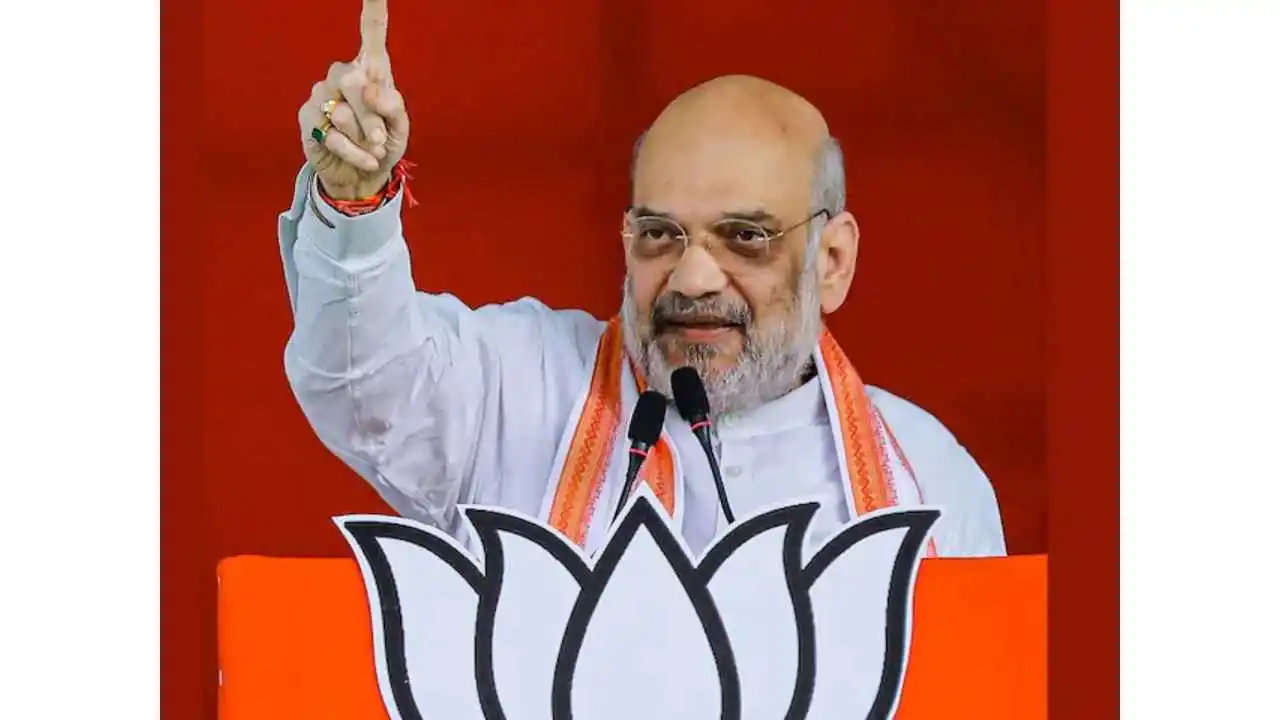
Union Home Minister Amit Shah on Tuesday claimed that the NDA has already bagged 310 seats after the completion of 5 phases of the Lok Sabha polls. He urged the people of Odisha to free the state from babu-raj and allow the BJP to form government at the Centre and also in the state. Shah was addressing 2 election rallies in Sambalpur where the BJP has fielded Union Minister Dharmendra Pradhan.
Shah claimed after the 5th phase of elections, the NDA has already got 310 seats and they will secure 400 plus seats after the 6th and 7th rounds of elections. The union home minister added that Odisha has been ruled by a handful of officers and this election will end the ongoing babu raj in the state.
He said that the tribals of Keonjhar get no benefit even though most of the mines and mineral reserves of the country are located in Keonjhar district. Shah enlisted Modi government’s achievements and said that the prime minister has ensured that there is no terrorism across the country. He added that PoK (Pakistan occupied Kashmir) was with India and it would remain with India.
Shah criticized Congress of being frightened over Pakistan possessing an atom bomb and said PM Modi has given a befitting reply to Pakistan’s terror activities and he does not fear such threat of nuclear bombs. He attacked the previous Congress government for doing nothing for tribals. Shah pointed out that former PM Atal Bihari Vajpayee had formed a separate ministry for tribal affairs while Narendra Modi as the PM has worked to eliminate Naxalism in Odisha, Telangana and Andhra Pradesh.
The Union Home Minister said PM Modi has constituted District Mineral Foundation and given crores of rupees for the development of the tribal region. Shah said the budgetary allocation for tribal affairs has been increased to Rs 1.25 lakh crore during Modi government from Rs 25,000 crore given during the previous UPA regime.
2024 Lok Sabha Elections
Congress accuses PM Modi of communal campaigning, questions his silence on key issues like caste census, reservations
Congress general secretary Jairam Ramesh’s attack came over Modi’s remarks in an interview to the media in which he had said that he has never uttered a word against minorities, and the BJP has not just today but never acted against them.
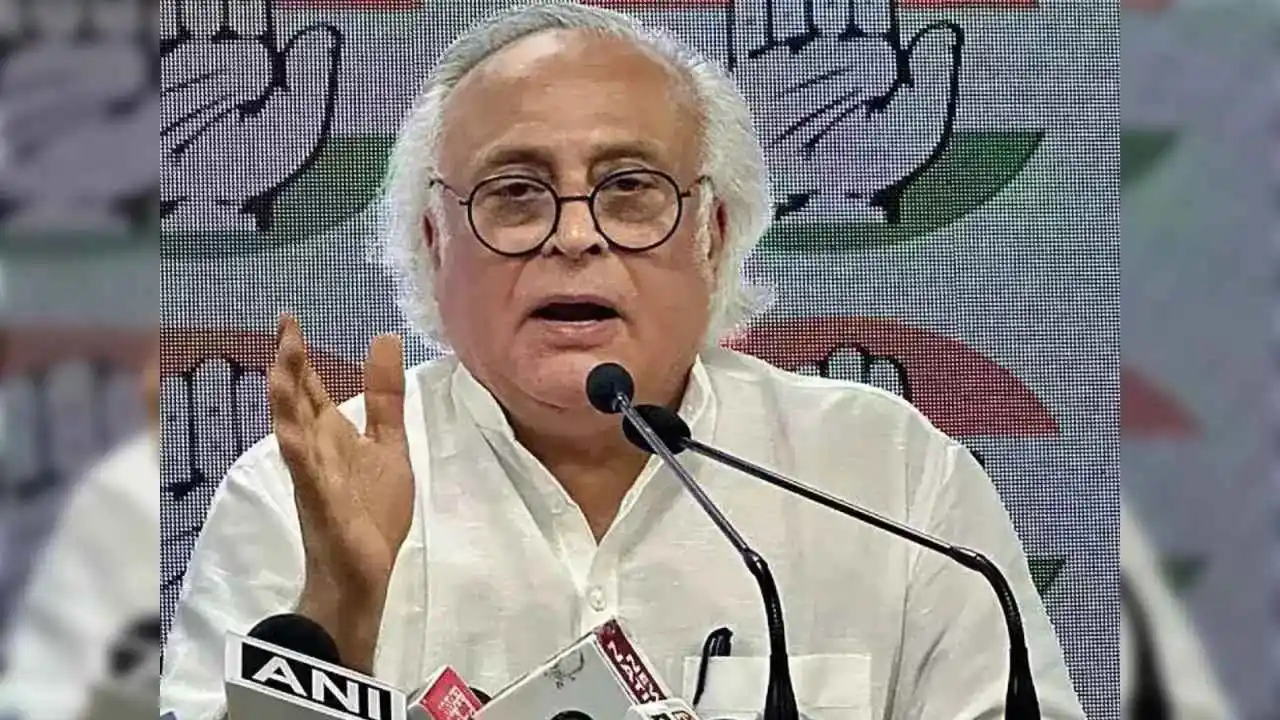
The Congress on Tuesday alleged that Prime Minister Narendra Modi had been indulging in polarisation throughout the election and has prepared a communal pitch, but Congress refused to play on that and pursued its paach nyay agenda. Congress general secretary Jairam Ramesh’s attack came over Modi’s remarks in an interview to the media in which he had said that he has never uttered a word against minorities, and the BJP has not just today but never acted against them.
Jairam Ramesh said that PM Modi’s entire campaign from April 19 has been based on communalisation with the Hindu-Muslim rhetoric throughout and has not talked about Viksit Bharat, issues of the farmers, Modi ki guarantee, women, youth workers, SCs, STs and OBCs.
Speaking about the remarks made by PM Modi on minorities, Ramesh said what nonsense was he talking about? He further added the prime minister is fast losing his memory and he has never had any adherence to truth. Ramesh called PM Modi a jhoothjeevi and said PM Modi does not remember what he said the day before and then claims that he never said it.
Ramesh said the prime minister had raised the issue of Muslim League imprint on the Congress manifesto, the mangalsutra remarks and the allegation that the Congress will give reservations on the basis of religion, which are all bogus statements.
He said this is the prime minister who, when asked some years ago whether he had any remorse at the killings during the Gujarat riots, said even when a small puppy comes under a car, one feels bad. This is the language that he had been using. Ramesh claimed that when Atal Bihari Vajapayee became the prime minister, L K Advani and company wanted a committee to review the basic structure of the Constitution. Ramesh said Congress boycotted that commission and this has always been the objective of the BJP and the RSS.
-
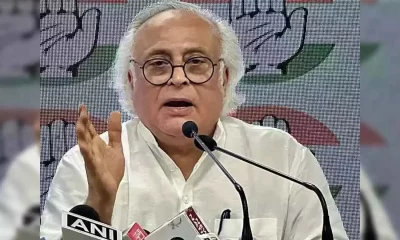
 2024 Lok Sabha Elections11 hours ago
2024 Lok Sabha Elections11 hours agoCongress accuses PM Modi of communal campaigning, questions his silence on key issues like caste census, reservations
-
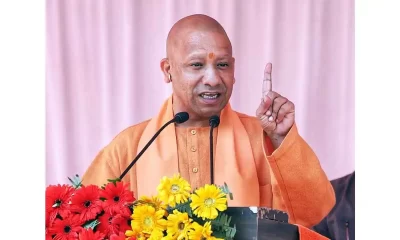
 2024 Lok Sabha Elections12 hours ago
2024 Lok Sabha Elections12 hours agoUP CM Yogi Adityanath says INDIA bloc is planning to loot country by dividing people on caste, religion
-
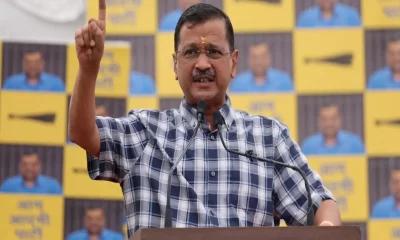
 India News11 hours ago
India News11 hours agoDelhi CM Arvind Kejriwal criticises Union Home Minister Amit Shah’s remark on AAP
-
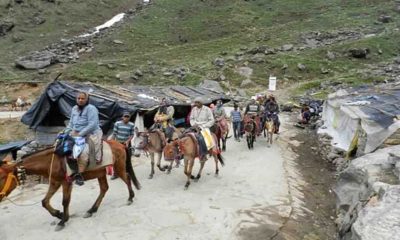
 India News16 hours ago
India News16 hours agoUttarkashi authorities issues order to limit movement of horses and mules on Yamunotri Dham pilgrimage route
-
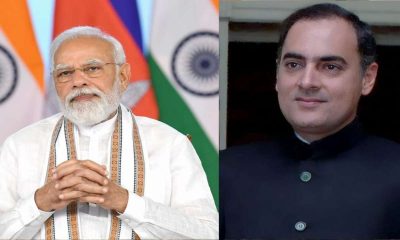
 India News17 hours ago
India News17 hours agoPM Modi pays tribute to former PM Rajiv Gandhi on his death anniversary
-

 Latest world news11 hours ago
Latest world news11 hours agoTurbulence in Singapore Airlines flight leaves 1 dead, 30 injured, plan makes emergency landing in Bangkok
-

 Entertainment10 hours ago
Entertainment10 hours agoPeeCee chops her hair for Bvlgari event, social media hails her new look
-
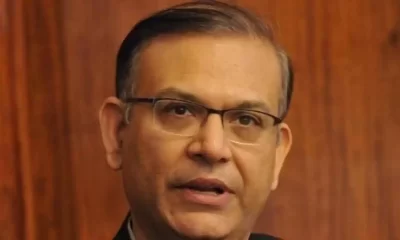
 2024 Lok Sabha Elections17 hours ago
2024 Lok Sabha Elections17 hours agoBJP issues show-cause notice to MP Jayant Sinha for not voting in Lok Sabha Elections

